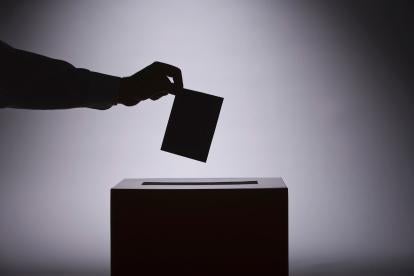Now that the mid-term elections are over, conventional wisdom is that the “card check” bill – also known as The Employee Free Choice Act – is not going anywhere in Congress. Employers are right to celebrate this news, and to feel a sense of relief that such a disastrous step on the part of our legislature seemingly has been averted.
However, the celebratory mood should be tempered somewhat by the realization that employers are not out of the woods just yet. Instead of waiting for Congress, the National Labor Relations Board (“NLRB”) is contemplating making some changes of its own to the union election process, and the ideas the NLRB has voiced are cause for concern.
One of the changes that the NLRB has been contemplating is switching from the current method of voting by secret ballot to electronic voting and voting over the internet. The problems encountered with electronic voting in general elections have been well documented over the last several years. There is no reason to think that the NLRB would find it any easier to make the transition to electronic voting than the people who run general elections did.
More importantly, there is no real reason to take on the change in the first place. The move towards electronic voting in general elections was driven by the desire to obtain faster and more accurate results where hundreds of thousands, and in some elections, millions of voters cast ballots. The number of voters in union elections is so small in comparison that the same rationale for change does not apply.
More troubling is the suggestion that internet voting might be a substitute for the conventional method. As proof, look no further than the situation where an employer wins an election by an overwhelming margin. In that situation, it would be apparent that many employees who signed authorization cards prior to the campaign actually voted for the employer when they had the benefit of confidentiality. Undeniably, one of the reasons for that was the fact that these employees would cast votes at an independent polling place monitored by the NLRB. They would vote in a booth protected by a curtain, fold the paper ballot, and stuff their folded ballots into the ballot box. In short, they are given every assurance that their votes will be secret. Without a secret ballot election, employees might end up with a union which they did not really want.
For example, if electronic voting were adopted, it’s not hard to imagine union organizers looking over voters’ shoulders as they vote on line. Worse, it’s also not hard to imagine union organizers working hard to defeat passwords, disrupt service, and otherwise work to frustrate the right of every voter to have the opportunity to cast one ballot, and to do so secretively.
Sometimes the elaborate steps which NLRB representatives take to assure an employer, employee and union that the conventional method of voting is absolutely secret and not susceptible to tampering seem overdone, but the truth is there is no substitute for the confidence those steps give to everyone participating. Employers depend on that level of confidence because only then can employees freely express their positions. Employers should be very, very wary of suggestions from the NLRB that the time has come to consider alternatives which do not inspire that same degree of confidence.




 i
i


